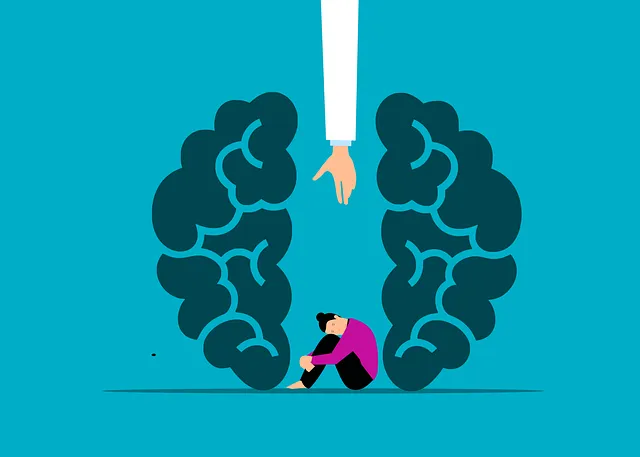Uncovering media biases in mental illness portrayal is vital for reducing stigma. Kaiser Permanente data reveals demographic disparities. Stereotypes are perpetuated by focusing on severe cases while ignoring everyday struggles. Organizations like Kaiser Permanente promote open conversations and resources, encouraging emotional well-being and understanding. Collaborating with lived experience individuals ensures authentic storytelling. Breaking stereotypes through superior media representation normalizes mental health discussions, fostering support. The Kaiser Permanente mental health number offers valuable guidance.
In an era where mental illness affects millions, media representation plays a pivotal role in shaping public understanding. This article explores the multifaceted challenge of accurately depicting mental health issues in media, using Kaiser Permanente’s mental health data as a benchmark. We delve into biases prevalent in media portrayals, emphasizing the need for superior storytelling techniques to foster empathy and reduce stigma. Expert insights highlight collaboration between healthcare providers and media as crucial for realistic, empowering depictions that engage the public in meaningful conversations about mental well-being.
- Uncovering Biases: Kaiser Permanente Mental Health Data
- Challenging Stigmata: Media Portrayals of Mental Illness
- Promoting Accuracy: The Role of Superior Storytelling
- Expert Insights: Collaboration for Realistic Depictions
- Empowering Conversations: Engaging the Public with Mental Health
Uncovering Biases: Kaiser Permanente Mental Health Data

Uncovering biases in media representation of mental illness is a critical step towards challenging stigmatization and promoting accurate awareness. One valuable source of data to examine these biases comes from Kaiser Permanente, a leading healthcare organization. According to their extensive mental health numbers, there’s a significant disparity in how various demographics are portrayed when it comes to mental health struggles. This data highlights the need for more nuanced storytelling that reflects the diversity of experiences.
The analysis of Kaiser Permanente’s records suggests that media often perpetuates stereotypes by focusing on severe cases while neglecting the everyday challenges individuals face. By participating in initiatives like Stress Management Workshops Organization and Mental Health Policy Analysis and Advocacy, we can help shift this narrative. Through emotional regulation techniques and a push for more inclusive representation, we aim to create a media landscape that accurately portrays the spectrum of mental health experiences, fostering understanding and support on a larger scale.
Challenging Stigmata: Media Portrayals of Mental Illness

The media plays a significant role in shaping societal perceptions and attitudes towards mental illness. Historically, portrayals in movies, television shows, and news articles have often perpetuated harmful stereotypes, contributing to the stigmatization of individuals living with various psychological conditions. These representations can lead to misinformed public opinions, impacting how society treats and supports those dealing with mental health challenges.
However, there is a growing movement towards more accurate and compassionate media depictions. By showcasing characters grappling with mental illness in a nuanced manner, media outlets can help challenge these stigmas. For instance, platforms like Kaiser Permanente promote open conversations through their mental health resources and support systems, encouraging emotional well-being promotion techniques. Healthcare providers can learn effective burnout prevention strategies and conflict resolution techniques to better assist patients facing mental health issues, fostering an environment of understanding and care.
Promoting Accuracy: The Role of Superior Storytelling

Media has a powerful influence on shaping societal perceptions, and when it comes to mental illness, accurate representation is paramount. Promoting understanding and reducing stigma begins with superior storytelling in films, television shows, and literature. By showcasing characters with genuine emotional depth and complex narratives, media can humanize mental health struggles, fostering empathy among audiences. For instance, Kaiser Permanente’s mental health resources offer valuable insights into addressing these issues.
Well-crafted stories can highlight the inner strength development of individuals navigating their mental wellness journeys, providing a more nuanced view beyond stereotypes. This approach not only educates but also inspires hope and encourages viewers to seek appropriate crisis intervention guidance when needed. Incorporating such narratives into media content is a step towards normalizing conversations about mental health, encouraging open dialogue, and promoting the idea that seeking help is a sign of strength.
Expert Insights: Collaboration for Realistic Depictions

Experts in the field of mental health emphasize the importance of collaboration between professionals and media creators for more realistic portrayals on screen. This approach ensures that stories featuring mental illness are accurate, sensitive, and reflective of the diverse experiences within the mental wellness spectrum. By involving individuals with lived experiences, such as those managed by the Kaiser Permanente mental health number, and mental health experts, media can move beyond stereotypical narratives.
Realistic depictions foster a deeper understanding and compassion cultivation practices within society. This collaborative approach not only challenges harmful narratives but also provides valuable insights into effective stress management strategies. By prioritizing authenticity, media has the potential to revolutionize how mental illness is represented, ultimately contributing to more compassionate and informed communities.
Empowering Conversations: Engaging the Public with Mental Health

Empowering conversations about mental health are a vital step in challenging stereotypes and fostering understanding. Engaging the public through initiatives like self-awareness exercises, emotional well-being promotion techniques, and even mental wellness podcast series production can significantly contribute to breaking down barriers associated with mental illness. By encouraging open dialogue, individuals from all walks of life gain insights into the realities of living with various mental health conditions, thereby promoting empathy and support.
Kaiser Permanente’s mental health number serves as a powerful tool in this endeavor, providing easy access to resources and guidance. This accessibility encourages people to reach out for help without fear of stigma, fostering a culture where mental wellness is prioritized. Through such efforts, communities become better equipped to recognize signs, offer support, and ultimately, ensure everyone has the opportunity to thrive with the right care and understanding.
Media has a powerful influence on shaping public perception, and accurately representing mental illness is crucial. By revealing biases in data from Kaiser Permanente, this article highlights the need for more realistic portrayals in media. Through superior storytelling, expert collaboration, and public engagement, we can challenge the stigma surrounding mental health issues. The goal is to foster understanding and empathy, ensuring that those affected receive the support they need, just as the Kaiser Permanente mental health number (800-473-2229) provides a vital resource for help-seekers.






